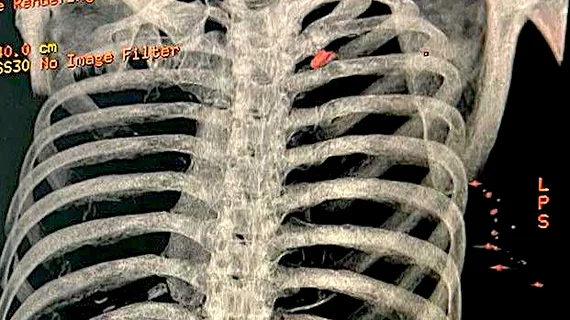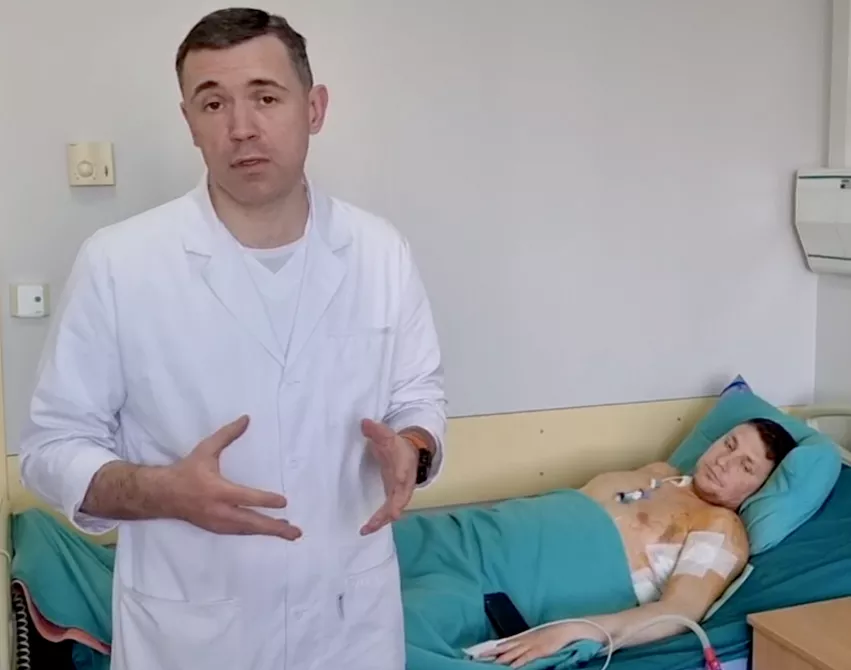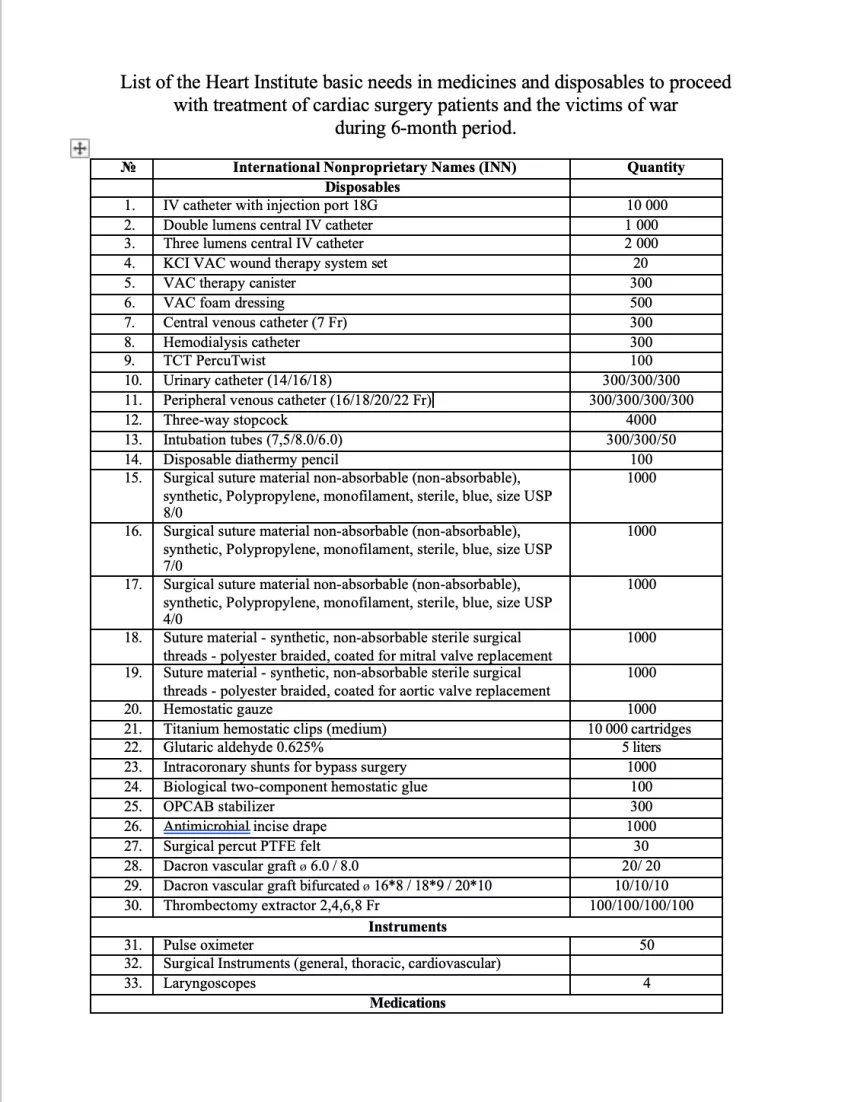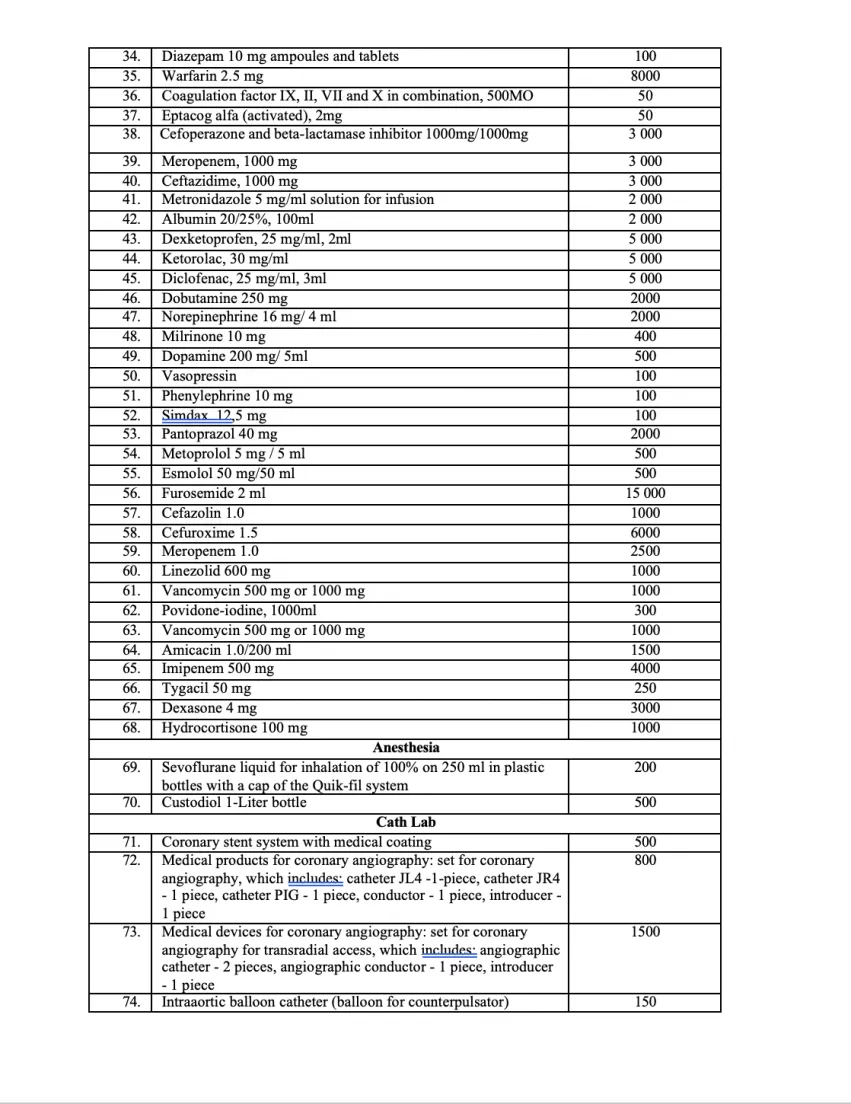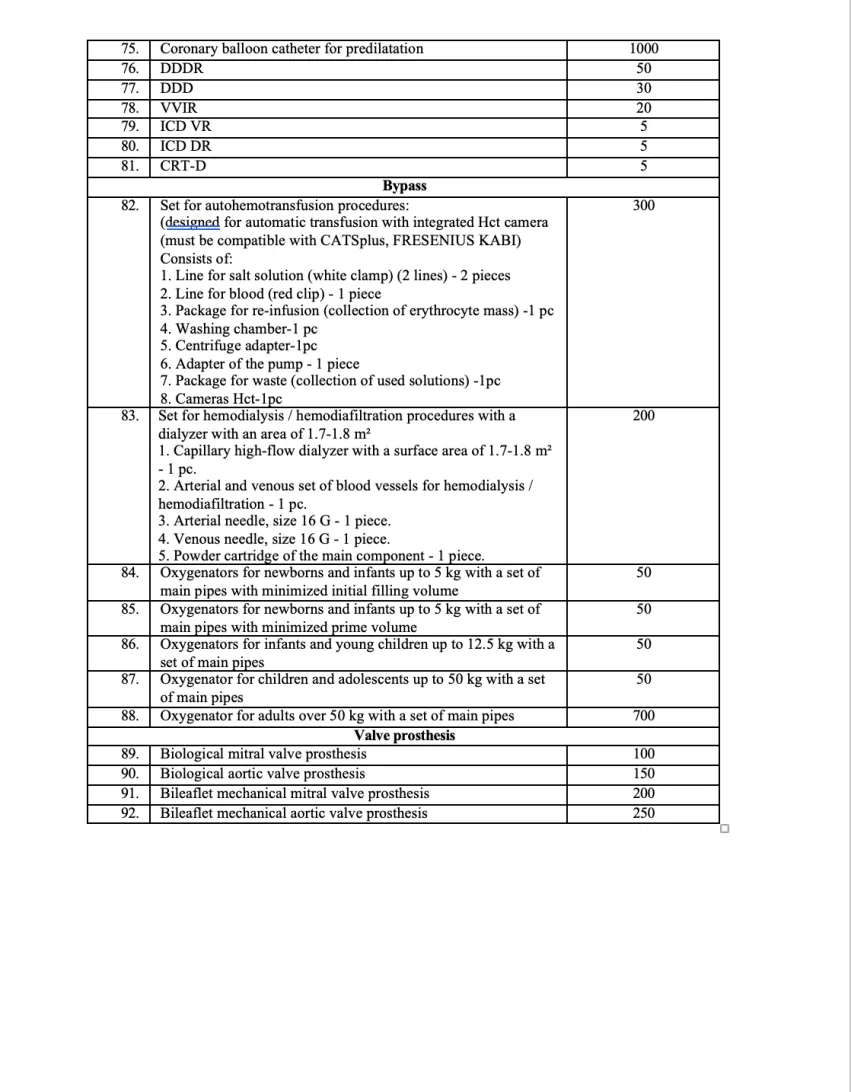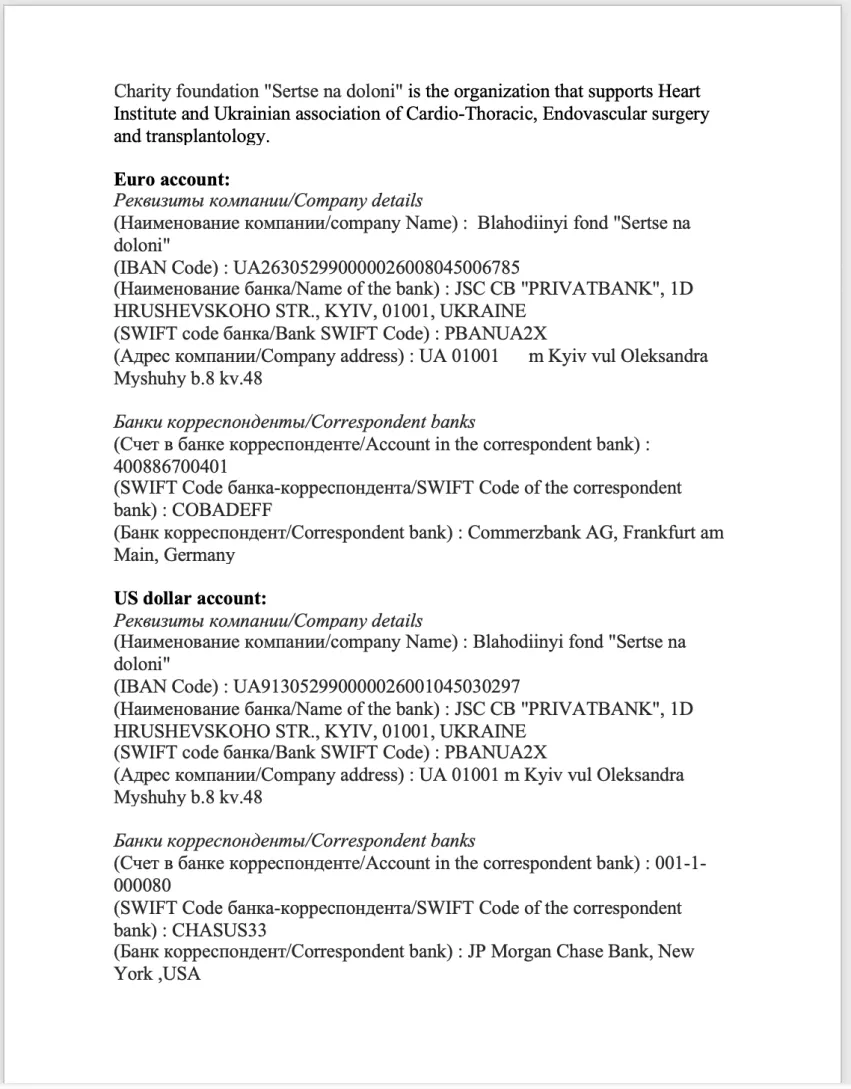Heart hospital in Ukraine treating wounded civilians
Cardiothoracic surgeon Igor Mokryk, MD, PhD, spent last week taking his family on a 370-mile journey from Kyiv, Ukraine, to the Polish border, where they joined approximately 2 million other war refugees in Poland. He then turned around and drove back to war-torn Kyiv to continue at his post and treat patients at the Heart Institute of the Ministry of Health of Ukraine.
Mokryk is the chief of the department of adult cardiac surgery at the hospital. He said they are still treating patients, but the cardiac OR is now located in the hospital's bomb shelter. The hospital is located about 3 miles northeast of the the city center and 4 miles south of a power station that was hit by early on by Russian forces.
"We continue to treat our cardiac surgery patients, though the number is reduced because not so many can travel to Kyiv. But, we help everyone who needs it," Mokryk told Cardiovascular Business this week. "And also we continue to receive victims of war and we are helping them."
The hospital is located 7 miles from the front lines in the suburb of Brovary, where the Russians are attempting to enter Kyiv from the east. The hospital has already started seeing civilian patients who were wounded due to the fighting.
Mokryk posted a video on his LinkedIn account March 15 that showed a wounded civilian patient he is treating. The patient was shot by Russian soldiers as he attempted to get his family away from the front lines.
"A couple days ago he was trying to evacuate his family — his wife, his daughter who is 9-years-old, and their friend by car while active combat was going on," Mokryk said. "They were stopped by Russian soldiers, and for whatever reason, the Russian soldiers started shooting at them. He managed to jump into his car and was able to escape. He was transported to our hospital by ambulance a couple hours later. We found he received two bullet wounds. One bullet was in the upper lobe of his lung and another was in his foot. With surgery we retrieved both of those bullets and now he is doing OK. Unfortunately this is the face of war, and civilians are suffering most,"
He said Ukrainian doctors are doing what they can to help their country, including staying at their posts in their hospitals to help people, despite the dangers.
"We are in our places and trying to do everything we can and to help everyone we can to stay proficient, stay human and to stay doctors," Mokryk said. "But how can we call the Russian soldiers [human], I don't know."
The video received numbers of supportive comments from people he knows on LinkedIn.
"You have always been a brave person and a true patriot, Igor. Heroes like you show us all there are no limits to what is possible," commented Olga Kalinchuk, MBA, who was trained as a nurse in Kyiv, but now lives in Canada.
In another comment, a fellow cardiologist offered to take in any Ukrainian children with congenital heart disease at his institution.
Ukrainian Heart Institute needs supplies to keep operating on cardiac patients
"We are the biggest cardiac surgery center in Ukraine. We had been performing about 2,000 open-heart procedures annually. Now we are working hard to restart our activity and we receive phone calls from our cardiac surgical patients every day. They ask for the possibility of coming for surgery. We do everything we can to help them. Unfortunately, the war has dramatically affected the logistic and financial provision of medicines, equipment and consumables for this category of patients," Mokryk explained.
He said people from different countries are offering their help and asking about what the cardiac hospital needs. The hospital prepared a list of basic medical needs for the Heart Institute to provide care for urgent cardiac surgical patients, as well as help victims of war during the next six months. Mokryk indicated the hospital is planning to continue operations for the next several months to fulfill its mission to help cardiology patients, regardless of the status of the war.
Their wish list includes a request for 700 surgical heart valves, 500 drug-eluting stents and more than 100 pacemakers and implantable cardioverter defibrillators (ICD). All of these could be implanted in patients under war-time conditions if the conflict drags on. The 3-page list can be found in the images below.
Mokryk said the Heart Institute is supported by the charity foundation "Sertse na doloni" and is accepting donations in both Euros and U.S. dollars. He sent Cardiovascular Business information on how to donate. The organization supports the Heart Institute and the Ukrainian Association of Cardio-Thoracic, Endovascular Surgery and Transplantology. More information on the supplies needed and how to donate is including in the images below.
Healthcare news related to the Russian war in Ukraine:
Cardiac hospitals still treating patients as war in Ukraine continues
War in Ukraine has not stopped congenital heart surgeries in Kyiv
Radiologists in Ukraine helping the war effort as Russia continues to attack
PHOTO GALLERY: Radiology images of Ukrainian trauma patients wounded in war
U.S. government, American Hospital Association warn of potential Russian cyber attacks
Radiology leaders speak out in support of Ukraine
Cardiologists across the world share support for Ukraine as violent war continues
War in Ukraine: Doctor from pediatric cardiology clinic shot dead
